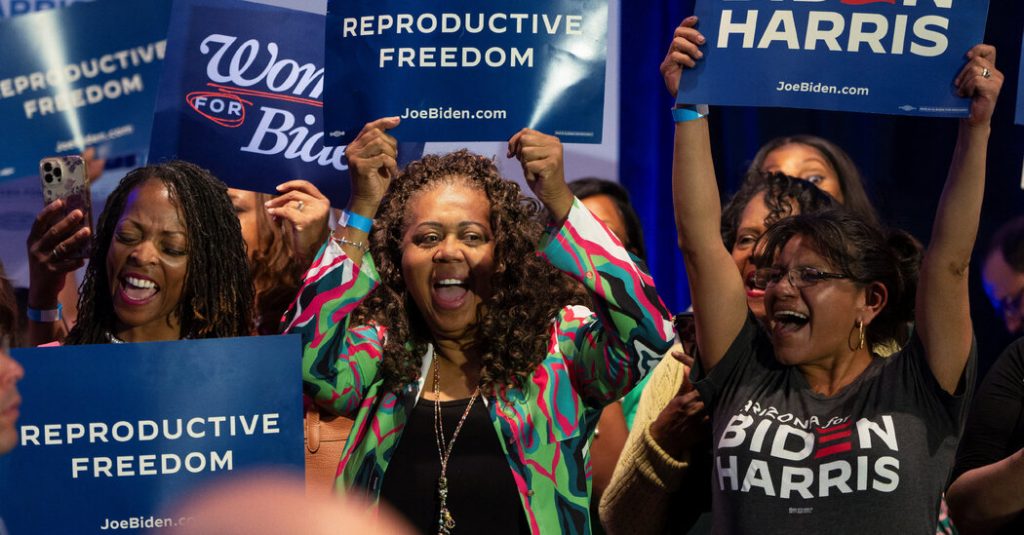As the Democrats gear up for a challenging presidential race against Donald J. Trump and a difficult Senate map, they are turning to ballot measures to protect abortion rights as a powerful political tool. States like Arizona, Nevada, Maryland, and potentially Montana are expected to have measures directly on their ballots. These measures could also appear in other states with competitive Senate races, such as New York, Florida, and Nebraska, potentially impacting the outcome of House races as well. Historically, abortion rights measures put before voters have been successful, even in red states like Ohio and Kansas, energizing liberal turnout and benefiting Democratic candidates.
Democratic candidates, state parties, and allied groups are actively campaigning alongside the ballot initiatives, running ads, fundraising, and incorporating the measures into their speeches. In Arizona, for example, Democratic candidates running for the Legislature are collecting signatures for the state’s ballot initiative as they interact with voters. The goal is to increase turnout among core Democratic voters like suburban women, young people, and African Americans. With President Biden facing low approval ratings and skepticism within his party, Democrats are hopeful that the ballot initiatives will provide a boost.
These abortion referendums have created new dynamics in an already tumultuous election season, alongside issues like Mr. Trump’s legal challenges and concerns about the country’s democracy. The majority of Americans support legal abortion in most cases, making the measures potentially influential in driving turnout. Democrats hope that increased engagement and voter energy will result from these initiatives, benefiting their candidates in key races. Vice President Kamala Harris emphasized the importance of reproductive freedom at an event in Florida, saying that every time abortion rights were on the ballot, the people voted for freedom.
In addition to impacting electoral politics, ballot measures on abortion rights are shaping the lives of voters directly affected by abortion laws. For instance, in Florida, a near-total ban on abortions has recently been enforced, severely restricting access for patients. In Arizona, a 15-week ban with no exceptions for rape or incest is set to be implemented, potentially affecting medical practitioners and patients. Organizations like the Committee to Protect Health Care are advocating for these issues and supporting the ballot initiatives in multiple states.
While Republican candidates and allies have been hesitant to campaign directly against measures protecting abortion rights, some have expressed opposition. In states like Ohio and Florida, governors have raised concerns about the scope of the measures. However, there is recognition among some Republicans that restrictive abortion measures could play into the hands of Democrats, given the pattern of abortion referendums in recent cycles. Regardless, Democrats are optimistic about the electoral advantage these initiatives could provide, with plans to leverage the issue in key House races and ensure reproductive freedom remains a primary voting issue.
The funding for these ballot measures has been significant, with contributions from major liberal groups and small donors. Dark money organizations and advocacy groups like Planned Parenthood and the ACLU have contributed substantial amounts. Think Big America, an abortion rights group started by Gov. J.B. Pritzker, has invested heavily in supporting these initiatives in various states. Leaders like Gov. Katie Hobbs in Arizona and the Biden campaign in Nevada are actively involved in promoting these ballot measures, recognizing the potential impact they could have on the upcoming elections. Democrats are hopeful that the energy and support generated by these initiatives will help them secure victories in crucial races across the country.













